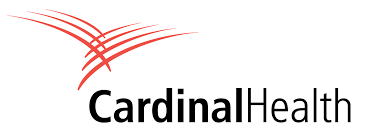
Amy Valley Says Prior Authorization Needs to Be "Dramatically Changed"

Amy Valley, vice president for Clinical Strategy and Technology Solutions at Cardinal Health, discusses challenges presented within the oncology community, and how Cardinal Health is addressing these issues.
Cost management utilization tools can overcome access barriers to care within the oncology community that often falls short with the use of prior authorization, said Amy Valley, vice president for Clinical Strategy and Technology Solutions at Cardinal Health.
Transcript
What are you the most excited about or looking forward to this year at the 2023 Community Oncology Alliance Community Oncology Conference?
It's always exciting to reconnect with colleagues. I really enjoy just seeing all the people that I've known over the years in community oncology. I'm really excited this year that we are launching a new tool called Care Exchange, which will help practices have a better understanding of total cost of care, as they're navigating value-based reimbursement programs. So, very excited to be able to share that with the attendees.
You have identified many current challenges with prior authorization in oncology care. Are you hopeful that any of the recent attention from Congress on this issue will make a difference?
I am hopeful. I think the reality though will be that it will take time. I think, ultimately, we would like the prior authorization process to be dramatically changed in order to remove the barriers to getting patients on therapy in a timely fashion. But, I think those changes will be slow.
I think that payers will hang on to that as one of the few utilization management tools that they have that they feel comfortable with and they can operate. And it's hard to drive that change.
From my perspective, we're still avidly investing in tools to help alleviate the burden of prior authorization. And especially if you think about the practices, work, staff challenges that they have right now, that anything you can do to save time and to allow the staff to overcome these administrative burdens is of high value. Because of that, we're very interested in being able to make prior authorizations not so cumbersome for them to manage. Hopefully we save them time. And we can, again get patients on therapy in a more efficient manner.
Newsletter
Stay ahead of policy, cost, and value—subscribe to AJMC for expert insights at the intersection of clinical care and health economics.








